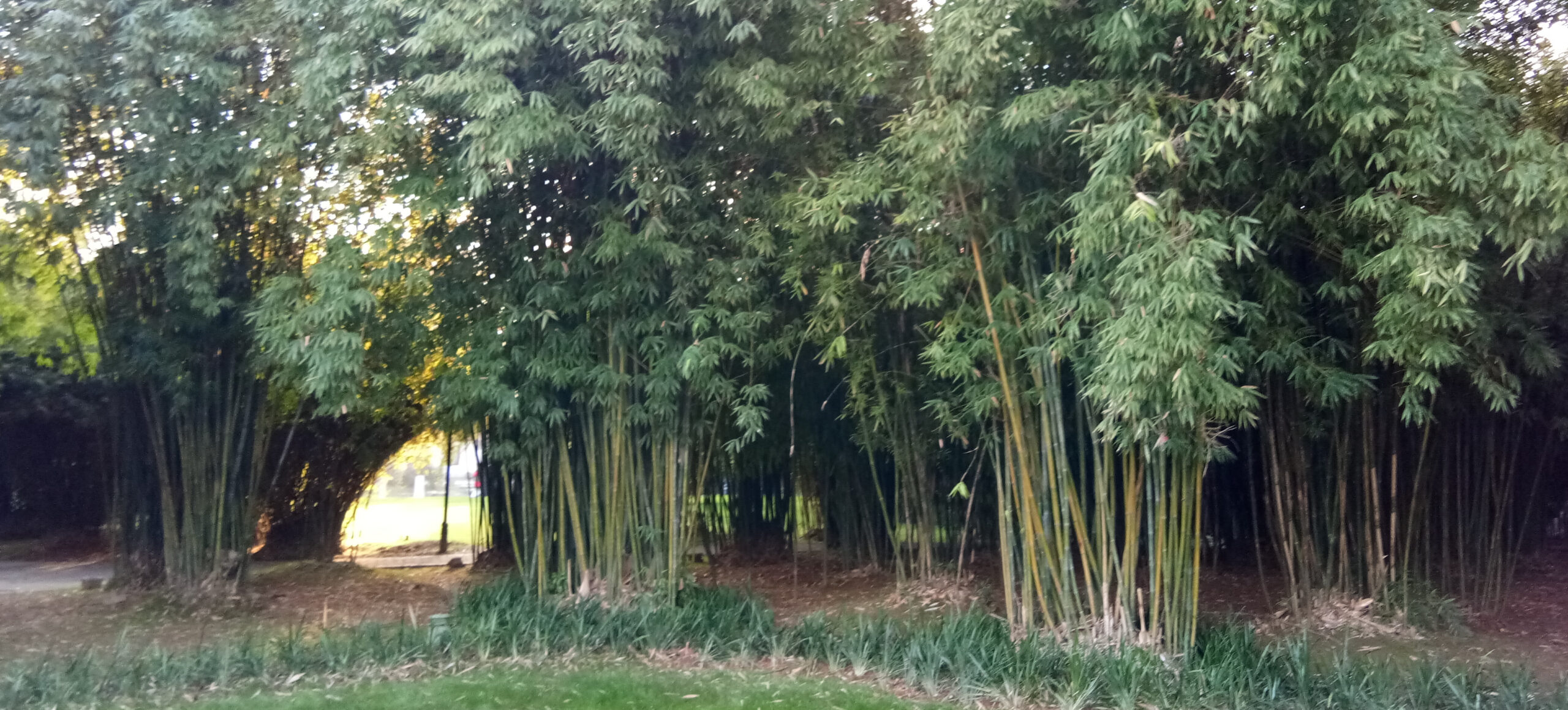




The mention of Japanses knoweed has the effect of putting the fear of God in property owners, but the bamboo plant, which is lesser known, can be even more devastating.
Homeowners have been planting bamboo for years in Britain to create an exotic oriental ornamental feature or a fast-growing privacy screen around their home. The problem with them is, some species are very fast growing and they grow underground as well as above '� one gardening expert claims they can grow up to three feet per day. What's more, the plant can spread underground just as quickly as it grows above and it doesn't respect fences, walls and property boundaries.
Unfortunately, the plant has become something of a garden centre staple, often bought and planted by homeowners to provide a privacy screen between them and their neighbours, little suspecting this has more sinister consequences.
Sold as a garden feature
Bamboo is not a native plant species in Britain. It was initially introduced to the UK in the 1970s as a beautiful ornamental fast growing plant, a plant of the grass family, hence it's fast growth ability and people innocently buy it to plant it in their gardens and yards.
From a property owner's perspective the plant can be a nightmare. Bamboo grows particularly vigorously when near well watered lawns and gardens or in areas where water collects. So, although the plant quickly forms a nice 'wall'� barrier blocking the views from nosy neighbours, the consequences of the planting can be long lasting and very expensive if your walls and fences are undermined and it spreads to neighbouring properties.
One source describes bamboo as a plant like no other - a very robust 'grass'�. Some species grow faster than any plant on earth, bamboo is unmatched for its versatility and renew-ability. Once its tenacious rhizome roots get a foothold, the plant is all but indestructible. You could be up against a serious challenge to remove it when it becomes a problem '� you'll have a serious battle with mother nature on your hands.
Bamboo spreads by putting out rhizomes, long underground stems that can spread underground for a hundred feet or more and it's strong: it has the power and strength to break through masonry walls and even lift concrete. It's almost impossible to stop once it gets started.
The only safe way to plant bamboo is to install a foolproof below-surface barrier made from HDPE (High-density polyethylene) installed all the way around the planting area.
Removing Bamboo
Despite what you read, the plant can be removed, but it's far from an easy task because the only way to do this successfully '� complete eradication - is to remove the whole root system. Removing the bamboo poles, known as culms or canes, is the easy bit. You can saw through the hollow poles easily with a hand saw and you can easily remove all of the plant that appears above ground.
But the canes are like the tip of an iceberg on a bamboo plant: most of the action goes on underground, 360 degrees around the plant. The roots usually don't go very deep, but they stretch out sideways and a good-sized bamboo will have them stretching out underground for many many yards. Their stubborn 'will-to-live'� makes them practically invincible. To irradiate them completely may involve digging up every single one from under the ground with a mechanical digger, it's that big of a project.
Specialist invasive plant company, Environet, reckons that roughly 10pc of properties in the UK have bamboo on their property or growing in a neighbour's garden.
Nic Seal, of Environet UK, told the Daily Telegraph:
'Bamboo is a nightmare for spreading and we're seeing more cases where it's holding up or even scuppering property sales.
'Buyers are right to be concerned but there's no regulation to protect them, so they have no legal recourse against the seller if bamboo starts to cause problems after they've moved in.
'Awareness around bamboo is many, many years behind that surrounding knotweed. But it's potentially worse than knotweed in its ability to cause damage and spread.'�
Buyer beware
Unlike with Japanese Knownweed, as Mr Seal says, property vendors are not legally obliged to disclose the presence of bamboo on their property or those properties adjoining, so if you're buying '� caveat emptor - buyer beware, you need to do a proper detailed survey.
In one project Mr Seal was involved in, he said: 'There were hundreds of metres of bamboo excavated from beneath the property '� it took a few days to get rid of the plant but rebuilding the home meant the owners had to move out for eight months.'�
The plant has been know to invade entire houses, hundreds of feet of bamboo roots emerging inside a property's walls and coming out of the floors in all down stairs rooms. Eradication involves taking out the whole of the ground suspended floors at immense cost and disruption.
Tags:
Comments